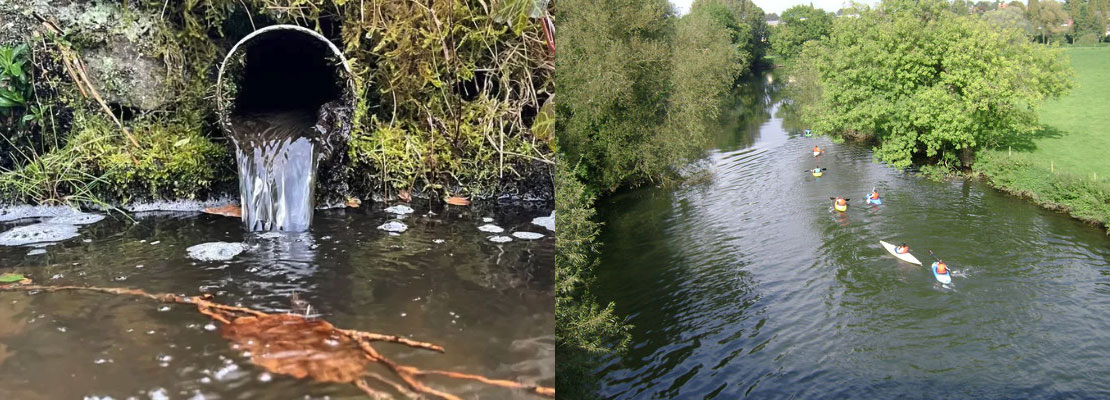Water and Sewage
By Andrew Watson
At the beginning of the 19th Century most water works in the United Kingdom were built, owned and operated by private companies. Even that champion of free enterprise Joseph Chamberlain in 1884 argued that, ‘It is difficult if not impossible to combine the citizens’ rights and interests and those of private enterprise, which aims at its natural and justified objective, the biggest possible profit’.
How prescient those words seem to us today. Water was then considered to be a public health necessity and not a commodity; drinking water was not then metered.
In 1973 the Water Act created Regional Water Authorities but they were starved of funding by Central Government. This lack of investment continued now under a Labour Government and by 1980 investment in the water sector was just one third of what it had been in 1970.
Water privatisation was first proposed in 1984 but strong public feeling against the proposals led to the plans being shelved until after the 1987 election when the plans were resurrected and implemented in 1989 save that pollution control, land drainage and flood protection were removed from the listed responsibilities of the companies. England and Wales now became the only countries in the world to have a fully privatised water and sewage disposal system. In Scotland and Northern Ireland water and sewage systems remained in public ownership.
Public opinion polls carried out in 2017 indicated that 83% of the British public favoured the renationalisation of all water services. One suspects that the figure today would be even higher.
We knew that Brexit would be bad for the environment for the simple reason that whenever the EU imposed regulations to enhance/improve air quality, cleanliness of our beaches or rivers or to protect the environment generally, the UK representative would invariably vote against the proposal always in a minority, not infrequently in a minority of one. Sometimes the UK failed to implement the new regulation and on a couple of occasions was prosecuted.
Under the terms of The Water Privatisation Act 1989 the new Water companies were paid £1.5 billion described as ‘a green dowry’, to maintain the quality of the rivers and purity of the water. Assuming that this sum was distributed proportionally between the companies this would have resulted in each company receiving £150 million to carry on the work their predecessors had been doing.
I can only speak of Severn Trent but I very much doubt they were the only company to behave in this way. They dismissed all their old staff who had been regularly testing the water for impurities; noting what wildlife there was including types of fish seen; clearing overhanging trees for the benefit of other river users such as fishermen, canoeists and kayakers; and securing the riverbanks where they were collapsing. What I think their previous staff would have described as general maintenance.
None of those tasks have been performed since privatisation. The ‘Green Dowry’ has been squandered on something else.
Professor Elizabeth Wellington is a microbiologist who has been working at The School of Life Sciences at Warwick University for a number of years and has established an international reputation for the study of microbiomes in the environment. She has been testing the impact of the discharge of raw sewage into the River Sowe below the sewage works at Finham. E.coli is present in sewage and she feels that a serious outbreak is only a matter of time. The wider and more comprehensive risk, which echoes findings on a stretch of the Thames not particularly close to a sewage works, is of antibiotic resistance. The source of the latter was thought to have emanated from pills of all types being thrown away into the river. Currently deaths from drug resistant bacteria globally amount to 700,000 annually but this figure is set to rise 10 million, greater than deaths from cancer and diabetes combined. Once we have superbugs, which are resistant to all known drugs and we are fast approaching that point – safe surgery and safe childbirth will be impossible. Even a scratch could become fatal.
When raw sewage is discharged into the river as happens hundreds of times a year, resistant bacteria emanations from hospitals and drug users exchange genetic material with each other and with other environmental bacteria in the water. New variants arise ever more drug resistant. There are invariably serious levels of resistant bacteria downstream of sewage works.
If we are to guard against this, discharge of raw sewage into our rivers must cease, not in 20 years time but now. It must be made a criminal offence.





